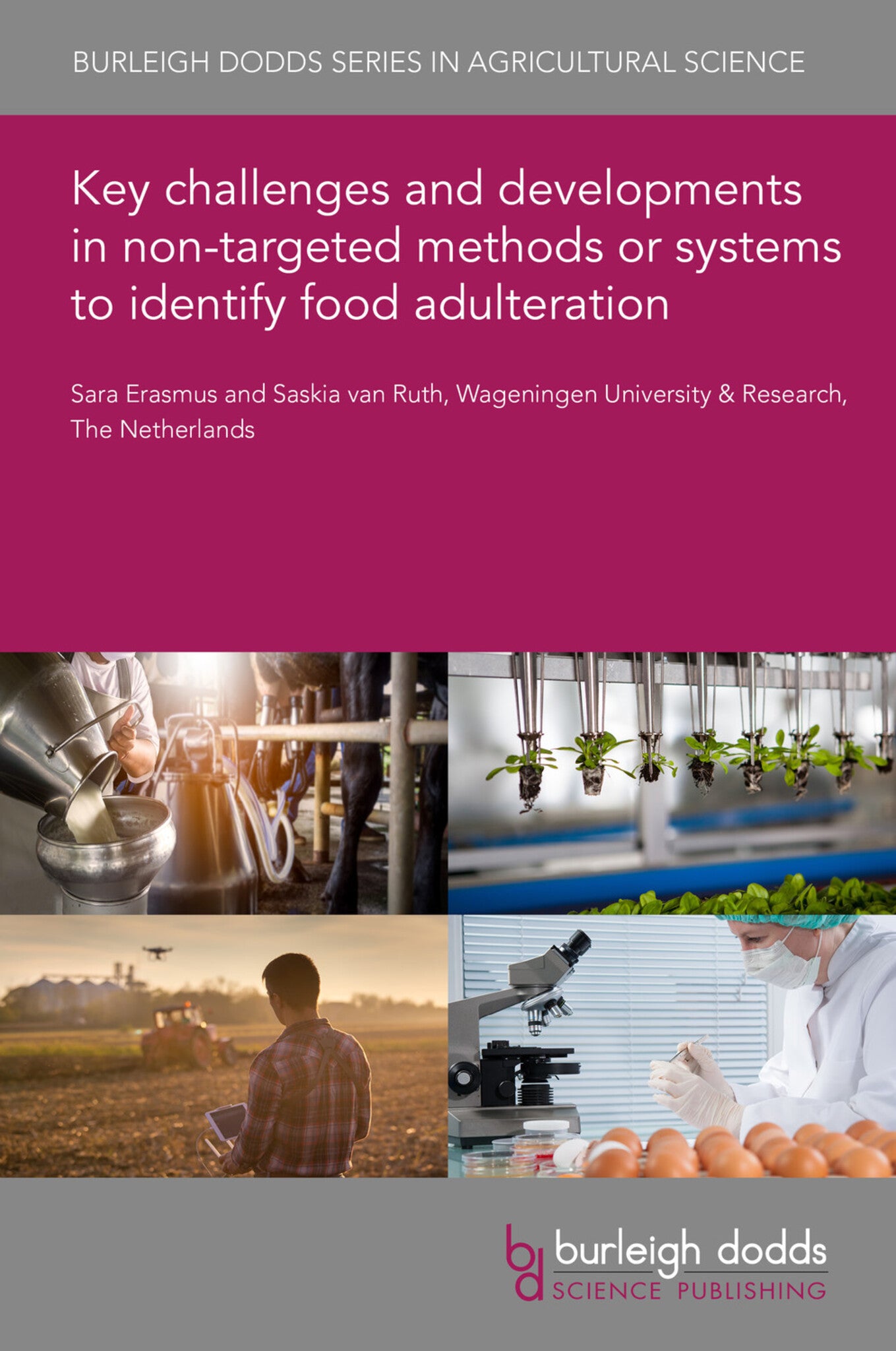We're sorry. An error has occurred
Please cancel or retry.
Key challenges and developments in non-targeted methods or systems to identify food adulteration

Some error occured while loading the Quick View. Please close the Quick View and try reloading the page.
Couldn't load pickup availability
- Format:
-
06 December 2021


TECHNOLOGY & ENGINEERING / Food Science / Food Safety & Security, Food security and supply, TECHNOLOGY & ENGINEERING / Agriculture / Sustainable Agriculture, TECHNOLOGY & ENGINEERING / Agriculture / Agronomy / Crop Science, Agriculture, agribusiness and food production industries, Food and beverage processing and engineering, Sustainable agriculture, Agronomy and crop production

1 Introduction 2 Terminology for non-targeted food authentication 3 Developments in non-targeted methods to identify unknown adulterations 4 Challenges in non-targeted methods to identify unknown adulterants 5 How the key challenges are being addressed 6 Future trends for non-targeted methods 7 Where to look for further information 8 References



